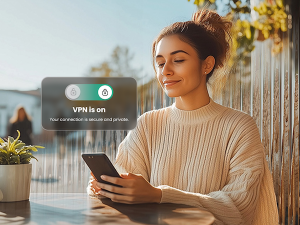Valentine’s Day is nearly upon us – and as couples and singletons alike gear up for a day that’s traditionally all about sharing, when it comes to our digital identities, might we be sharing too much, and how can we protect ourselves? With data showing that past, present and possibly even future lovers are willing to secretly snoop on your online information to find out all about you, it’s safe to say that ill-intentioned online criminals can too.
Living in a digital world has made it far easier to share more than just our hearts with the people we care about – but this can leave us more vulnerable to over sharing, and therefore to fraudsters. Online fraudsters have been known to use Valentine’s Day as an opportunity to take advantage of online dating sites and social media to scam those looking for love. And with many feeling isolated and shut off from friends and family at the moment, online dating can be a way to make connections which are currently lacking – whether that be romantic relationships or friendships. However, this opens up the opportunity for online scammers to make the most of our desire to feel connection with others, and these criminals will know where to look to find out more about you.
Social media: friend or foe?
Whether you love it or loathe it, Valentine’s Day is going to look a little different this year. If you’re looking for that special someone, the current lockdown, working from home and simply not going out as much as usual will have taken its toll on your social and dating life. It should come as no surprise that as a result of the pandemic, time spent online has surged, with people having either introduced or significantly increased their online activity, including online dating and social media use.
While many believe the risk lies in the dating apps themselves, the information you share across any online entity – known as your digital footprint – is where you need to pay attention, and dating apps can be a safe and enjoyable way to meet new people as long as you take the right precautions. And on a day that is very social media friendly – many can’t help but share photos and post about loved ones online on Valentine’s Day – make sure you are doing so safely. While a lot of people associate online crime with malware or phishing attacks, many aren’t aware of how vulnerable they are when sharing information on social media. If you are not careful potential love interests, and criminals alike, can find information about your family, your home, and your job – all leaving you vulnerable. So it’s worth checking your privacy settings before sharing that photo on Instagram.
Protecting your dating identity
The threat of having your personal identity stolen, having your dating profile hacked, or being catfished, are thankfully rare, but every year person can fall victim to these threats, so it’s no wonder that so many don’t feel secure when dating online. In the worst cases, those whose dating profiles are hacked might be extorted for money, and those encountering a catfish could end up handing over personal information which can be used against them.
Not oversharing is not an art – only share information on your profile if you feel comfortable in doing so. This is important from both a personal and security standpoint. If your information is compromised, it could lead to anywhere from identity theft to harassment, so when you use a dating app, keep the sharing to a minimum—and keep your eyes peeled for any suspicious activity across your social media, online accounts, and even your finances.
These things all sound frightening – and of course, they are! But it’s important to remember that they are thankfully rare, and you can still enjoy all the benefits that dating apps and social media have to offer if you take some simple steps. My top tips include:
- Don’t overshare on social media. Oversharing online can paint a picture of us very quickly. Keep sensitive data such as your date of birth, address, job, or names of family members private. Also, consider carefully whether you really want your relationship status made public.
- Sharing is not always caring.Only share photos and other social media posts with your intended audience. If you have blocked an individual, make sure they stay out of your social media feeds. Services like Facebook and Instagram have features that allow posts to be viewed only by confirmed connections. Check your privacy settings regularly, as they often change.
- Protect your identityand important personal and financial details using McAfee Identity Theft Protection, which also includes recovery tools should your identity be compromised.
- Employ multi-factor authenticationto double check the authenticity of digital users and add an additional layer of security to protect personal data and information.
- Be careful who you befriend online.Only accept friend requests from people you know in real life. Often hackers or criminals will send requests so they can see the information you are sharing to help them in access your private information.
- Set up unique logins for each app you are using. Setting up a different password for each app or account you use is a great way to protect yourself and your data online. If you no longer use a social media account, delete your information and deactivate your account.
- Watch out for geo-tagging.Many social networks will tag a user’s location when uploading a photo, as well as offering users the option to tag their location when posting. You should ensure this feature is turned off to avoid disclosing your location to criminals or people you would not want to know your whereabouts.
So whether you’re single and looking for love, or loved up and ready to shout about it online, just remember to bear the above in mind to protect yourself from online scams.











